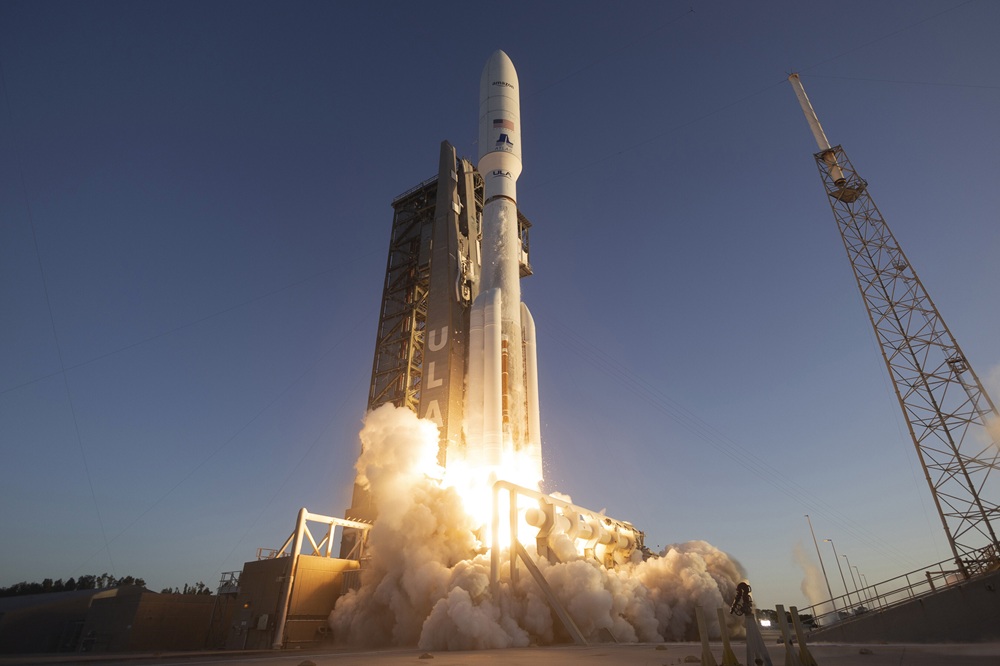LOUISVILLE, Colorado: Sierra Space, a leading commercial space and defense technology company, announced a successful third milestone in its Resilient GPS (R-GPS) satellite program for the U.S. Space Force (USSF). The company demonstrated early integration of R-GPS satellite technology through FlatSat testing of flight software and hardware subsystems, alongside successful communication with ground software, marking significant progress toward mission readiness.
This milestone follows Sierra Space’s September 2024 award of a “Quick Start” contract from the USSF Space Systems Command (SSC) to develop design concepts for smaller, more cost-effective GPS satellites. Achieving this success within six months underscores Sierra Space’s rapid development capabilities in national security space technology.
Erik Daehler, Vice President of Sierra Space Defense, highlighted the competitive nature of the program, noting that the field has narrowed to three companies. He emphasized Sierra Space’s commitment to advancing GPS technology to safeguard U.S. security and economic freedom in the Orbital Age.
GPS technology is critical for civilian applications such as navigation and delivery services, as well as for military operations. However, adversaries increasingly employ sophisticated jamming and spoofing techniques that threaten GPS reliability. The USSF’s R-GPS program aims to enhance GPS resilience by integrating a proliferated network of smaller satellites into the existing GPS architecture, adding layers of protection against these threats.
The recent testing milestone demonstrated seamless command and telemetry flow between Sierra Space’s ground software and ground stations, validating the system’s capability for future orbital operations. The FlatSat testing, where satellite components are arranged flat for subsystem evaluation, confirmed successful early integration of flight software and hardware-an essential step toward deploying the R-GPS Space and Control Segments to augment the current GPS constellation.
In collaboration with General Dynamics Mission Systems, Sierra Space’s R-GPS technology successfully generated all required GPS navigation signals, including P(Y), M-code, and C/A signals at L1 and L2 frequencies. These signals are critical for secure, accurate navigation and ensure compatibility with existing GPS receivers worldwide.
The demonstration evaluated the satellite’s hardware, firmware, and software performance, confirming the capability to produce resilient GPS signals designed to counter jamming and spoofing. This capability is vital for maintaining the integrity of GPS-dependent systems across military and civilian domains.
Amy Johnson, Vice President and General Manager at General Dynamics Mission Systems, praised the collaboration, stating the need for GPS satellites with enhanced capability and resilience delivered rapidly. She affirmed their commitment to supporting the USSF’s objectives through proven, mission-ready technology.
Founded as a spin-off from Sierra Nevada Corporation in 2021, Sierra Space is headquartered in Louisville, Colorado, and operates multiple facilities across the U.S. The company is known for its innovative space transportation solutions, including the Dream Chaser spaceplane and inflatable space station technology. Sierra Space serves commercial, Department of Defense, and national security customers, expanding production capacity to meet constellation program demands.
The R-GPS program aligns with Sierra Space’s broader mission to build a platform in space that benefits life on Earth while protecting economic freedom in the Orbital Age. Their expertise in small satellite technology and rapid deployment positions them as a competitive prime contractor in the USSF’s Quick Start initiative, which seeks to accelerate the deployment of resilient GPS capabilities.
The successful FlatSat and ground communication tests represent a pivotal step toward operational deployment of R-GPS satellites. By integrating smaller, cost-effective satellites into the GPS architecture, the USSF aims to create a more robust, survivable navigation system that can withstand emerging threats in an increasingly contested space environment.
Sierra Space is now positioned to advance to Phase One of the USSF Quick Start program, moving closer to delivering a resilient GPS layer that enhances national security and supports global navigation needs. This progress underscores the critical role of innovation and commercial partnerships in maintaining U.S. technological superiority in space.
This milestone reinforces Sierra Space’s status as a key player in defense space technology, contributing to the evolution of GPS infrastructure that underpins both civilian life and military operations worldwide.





